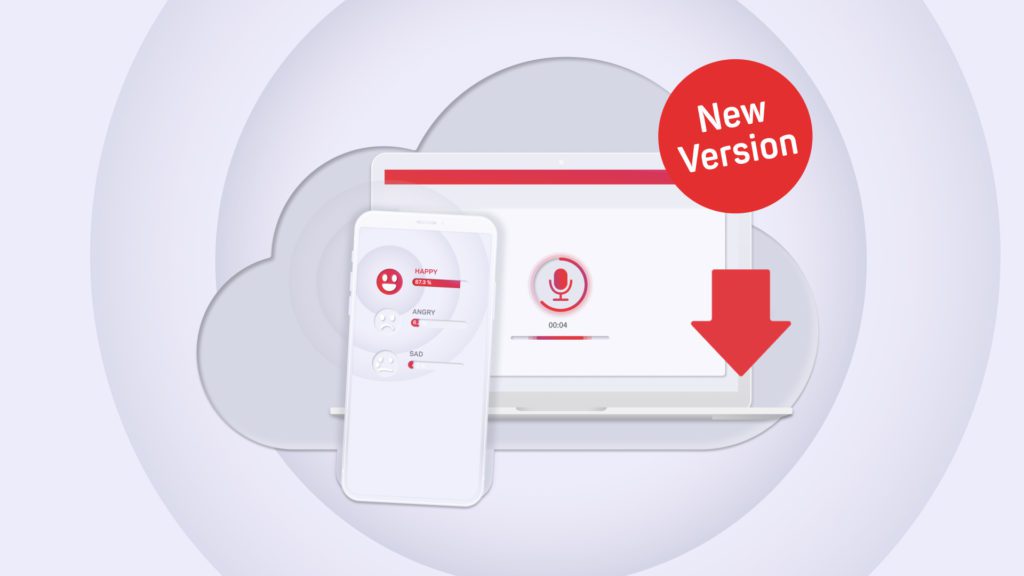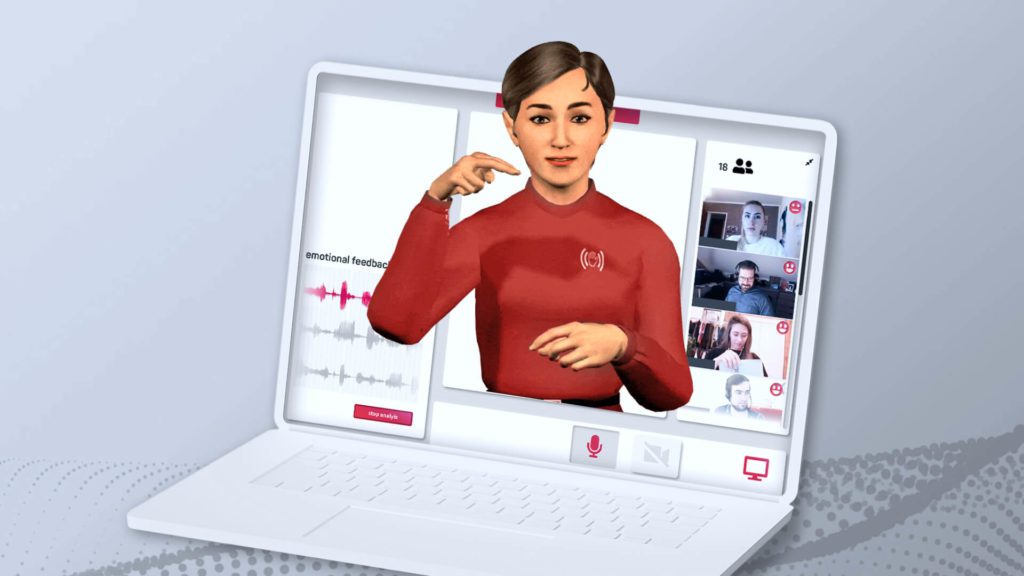- The world’s leading provider of human insights software iMotions integrates voice analysis technology from German AI company audEERING
- Both companies have significant experience in identifying and analyzing human expression as accurately as possible in order to draw conclusions about human behavior, emotions, and biomarkers
- A wide range of applications in science and industry underlines the importance of cooperation
Gilching, 15.08.23 – audEERING, the German market leader for AI-based audio analysis, is cooperating with iMotions, the world’s leading provider of software for interdisciplinary research into human behavior, to expand measurement and analysis areas in human science research. With the integrated voice AI component, the multimodal software suite takes on another dimension that provides insights into human behavior.
The collaboration aims to leverage the strengths of both companies to offer innovative solutions for the analysis and capture of emotions and biometric data. By integrating audEERING’s advanced AI-powered audio analysis technology devAIce® into iMotions’ comprehensive biometric research platform, researchers, market researchers, and other professionals can gain deeper insights into people’s emotional experiences. An important indicator of this is the human voice.
The German company audEERING specializes in the development of forward-looking AI technologies for the analysis of spoken language that recognizes features from the voice that allow conclusions to be drawn about emotional expression, among other things.
With its iMotions Lab product, the software provider iMotions enables researchers to collect, analyze and use various data modalities such as speech, video, text, biosignals, and more in parallel for their research approaches. It integrates and synchronizes a variety of physiological sensors that provide different human scientific findings, including eye tracking, skin conductance, EEG, ECG, and EMG, as well as camera-based emotion and facial expression analysis. As one of the five subsidiaries of the world’s leading provider of human insight AI, Smart Eye Group, iMotions operates in an exclusive partner network of specialists in the field of human science AI, including Affectiva.
Capturing emotions in a wide range of applications
The combination of audEERING’s patented audio analysis algorithms with iMotions’ biometric measurements enables a detailed collection of emotions in a wide range of application areas. From product development to advertising and market research to clinical diagnostics, the collaboration opens up new possibilities to better understand and analyze human emotions.
By using audEERING’s voice analysis technology, researchers can, among other things, access their multidimensional emotion model. This measures valence, activation, and dominance. Valence refers to the positivity or negativity of an emotional expression, activation of the energy level, and dominance of the predominant emotional expression.
Peter Hartzbech, CEO of iMotions, welcomes this development as an important step
“The human voice is adding another dimension to understanding human emotions that drive their behavior and decisions. With iMotions being a multimodal research tool, we want to incorporate this dimension to make voice-based markers accessible to researchers already working with signals collected from the eyes, face, or skin”.
audEERING, which was founded in 2012 as a spin-off of the Technical University of Munich, can understand the significance of this development first-hand: “As a company with a scientific approach, it is important to us to continuously improve the quality of research methodologies,” says Dagmar Schuller, AI expert and CEO of audEERING. “iMotions is a world-renowned research platform and we are very pleased that they have chosen us as their voice AI partner. Together, we will make a significant contribution to improving scientific processes and usher in a new era for human behavior analysis.”
audEERING’s AI technology is already in use outside scientific research: devAIce is being used in various private-sector sectors, for example in the development of empathetic robots for the care sector or the improvement of the customer experience when interacting with call centers.








